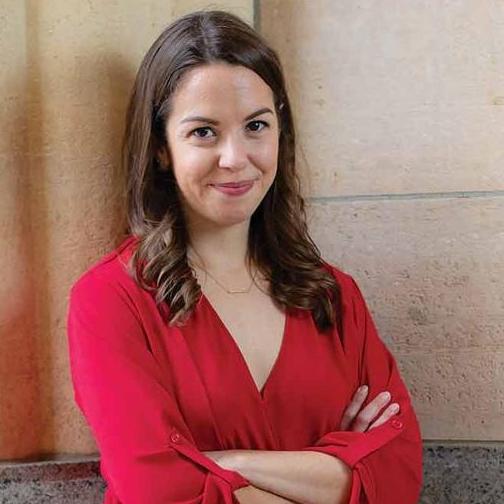I showed up to my first Dare to Repair Cafe with a notepad and a shopping tote full of holey sweaters.
The pad I needed to take notes on the event — a roving ministry, of sorts, for broken household items.
The sweaters, on the other hand, I took as mea culpas: I had said I’d bring a faulty Bluetooth speaker in the hopes a volunteer could make it play again. But my husband had already tossed the speaker in the trash. We were, in other words, part of the problem.
“You won’t do that again,” said Don Winkelman, 71, a long-time volunteer for Dare to Repair. “We have people come in one time, with a lamp or something, and then we see them again and again.”
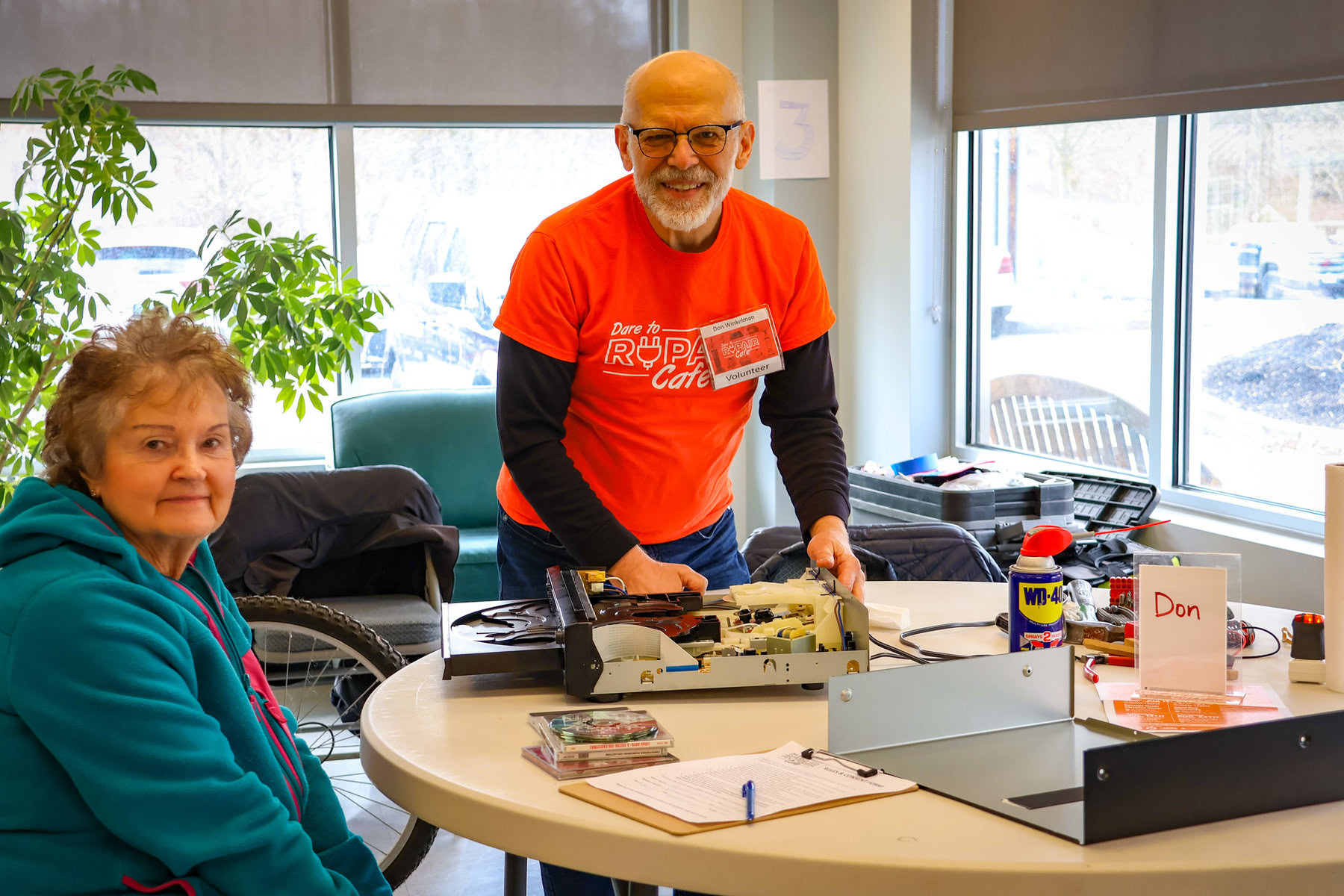
Dare to Repair exists to reprogram wasteful consumers like my husband and me. Since 2017, the roving monthly cafe has traversed Buffalo, New York, and its environs, helping attendees repair broken electronics, household goods and small appliances.
According to the Environmental Protection Agency, Americans throw away nearly 40 million tons of such items each year. Repair cafes — of which there are now more than 3,000 across the world — offer an economical and environmentally friendly solution: Fix your broken stuff, instead.
In Buffalo, repair cafes represent part of a larger regional movement around sustainability, communal resource-sharing and mutual aid. The monthly events are organized by the city’s Tool Library, a fast-growing, 13-year-old nonprofit group that lends tools and other equipment to individuals, small businesses and community organizations.
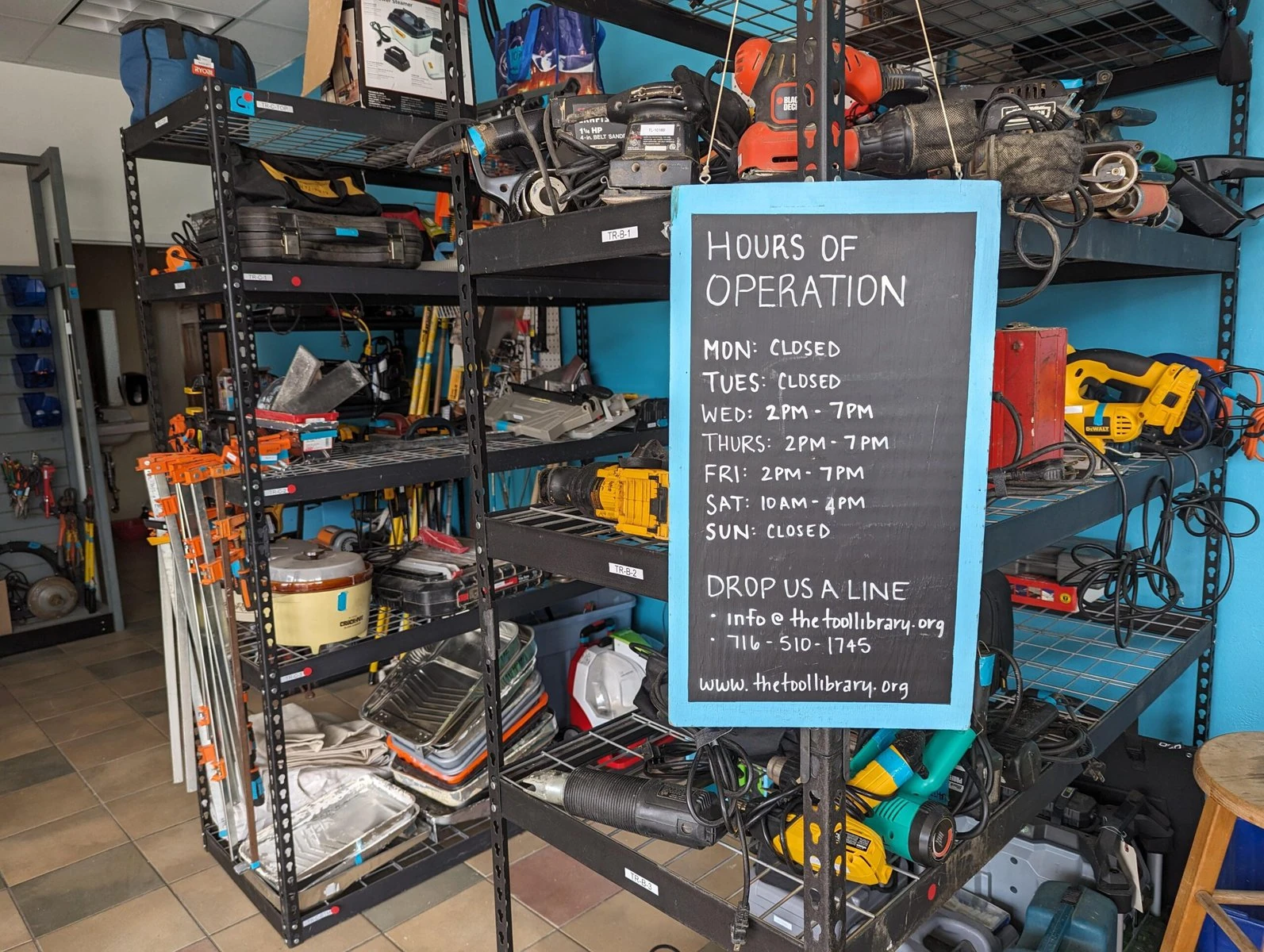
To date, the Tool Library has diverted 7,779 pounds of waste from landfills via its repair cafes and amassed a communal tool collection of nearly 5,000 items. It also serves as a model, a resource and a centralized hub for a range of other community sharing projects, from little free libraries to public gardens.
“We’re part of a broader economic transition away from a system that really hasn’t been serving most people, locally or around the world,” said Darren Cotton, The Tool Library’s founder and executive director. “We’re shifting toward models that are more sustainable, more regenerative and that rely more on people helping one another, as opposed to a market delivering services.”
The birth of Buffalo’s Tool Library
Cotton, 35, first dreamt up plans for The Tool Library while studying urban planning at the State University of New York at Buffalo. The university is an economic and cultural engine for the region, but its decision to open a suburban campus in the 1960s siphoned both people and resources away from University Heights, the city neighborhood surrounding its original campus.
By the late 2000s, entire blocks of University Heights had been gobbled up by absentee landlords who leased their neglected properties back to low-income renters and students. Residents wanted to fix up their homes and address wider neighborhood problems, such as street trash and low tree coverage. But they frequently lacked access to basic tools, or the knowledge required to use them.
Weighed down by negative news?
Our smart, bright, weekly newsletter is the uplift you’ve been looking for.“It was a convergence of all these different problems,” Cotton said. “I realized, ‘Wow — a library is such a great platform for addressing all of them.’”
The Tool Library launched in a tiny storefront in 2011 with roughly 40 tools and $15,000 in federal community development funding. Cotton and his all-volunteer staff developed a membership model, where residents could pay a low annual fee for unlimited tool rentals, as well as a system for tracking their growing inventory of hand tools, power tools and lawn and garden equipment.
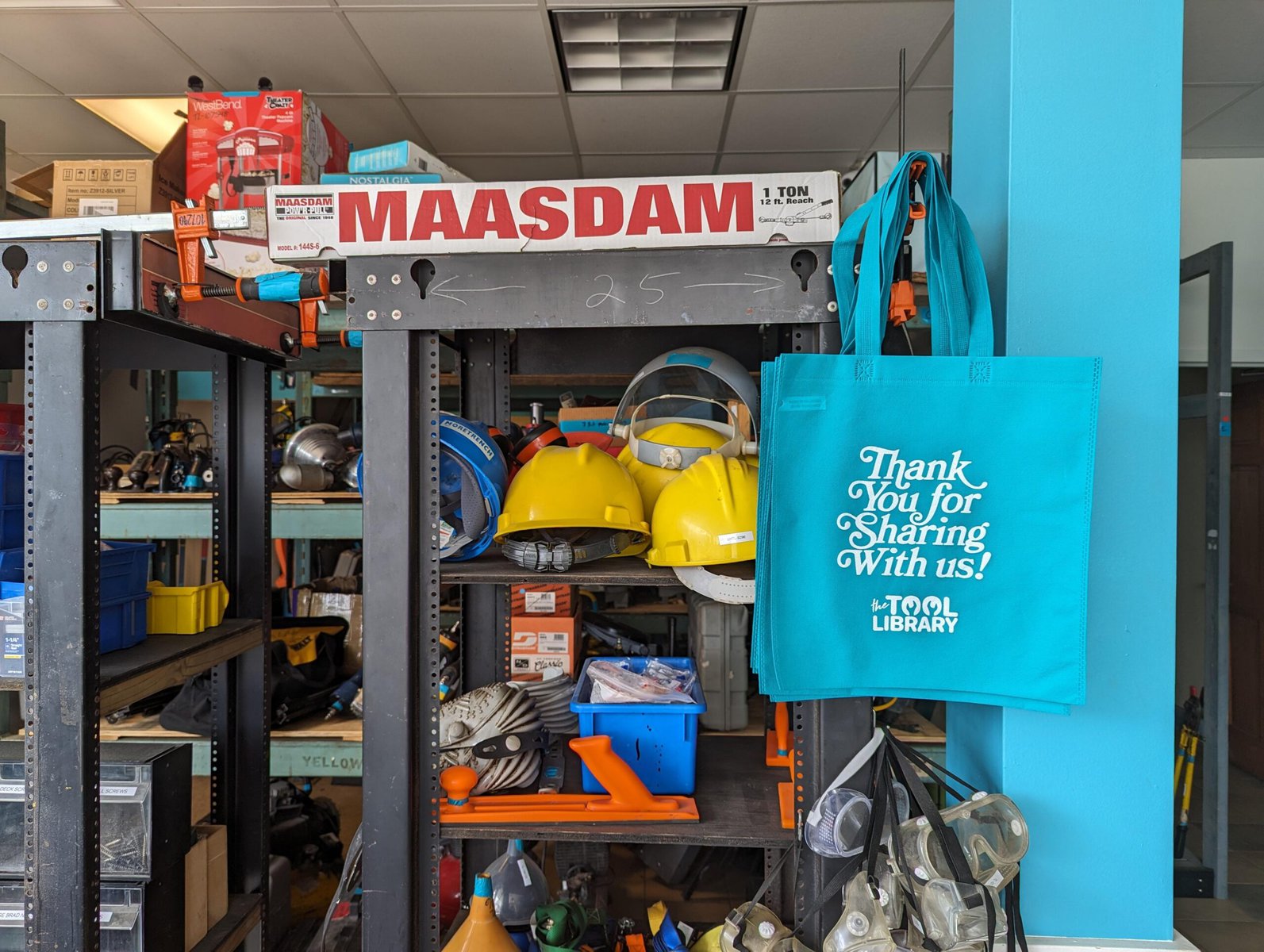
In 2022, Cotton took on a full-time role and hired Lissa Rhodes, a poet and trained carpenter, as the Tool Library’s first operations manager. One year later, The Tool Library relocated to the ground floor of an old neighborhood bank on Buffalo’s Main Street, expanding its footprint from 1,500 square feet to more than 2,500.
Today, the organization boasts nearly 1,500 members and processes more than 14,000 loans a year. Its wide east- and south-facing windows overlook a bright lending room, where tools are shelved in neat blocks of Ryobi green and DeWalt yellow: drills, jigsaws, sanders, drivers, lawnmowers and leaf blowers, hydraulic jacks, router tables. An entire wall is hung with coils of extension cords and hoses, while several shelves gather the library’s growing collection of household miscellanea: a sewing machine, a projector screen, a bocce ball set, a cotton candy maker.
“A tool is anything you need to get a job done, whatever that job is,” said Rhodes. “Is it a presentation? Then your tools are a projector screen and a projector.”
Repair Cafes
That community-minded, DIY ethos has gradually prodded The Tool Library into other initiatives, including tree-plantings, park clean-ups and — of course — repair cafes. In 2017, a director with Buffalo’s recycling department approached The Tool Library about collaborating on a series of repair events.
Since then, and despite a hiatus during the Covid-19 pandemic, the Repair Cafe has salvaged more than 500 items. Volunteers will happily tinker with lamps, furniture, small appliances, bikes, broken windows and damaged clothes, though they don’t currently accept computers, tablets or phones.
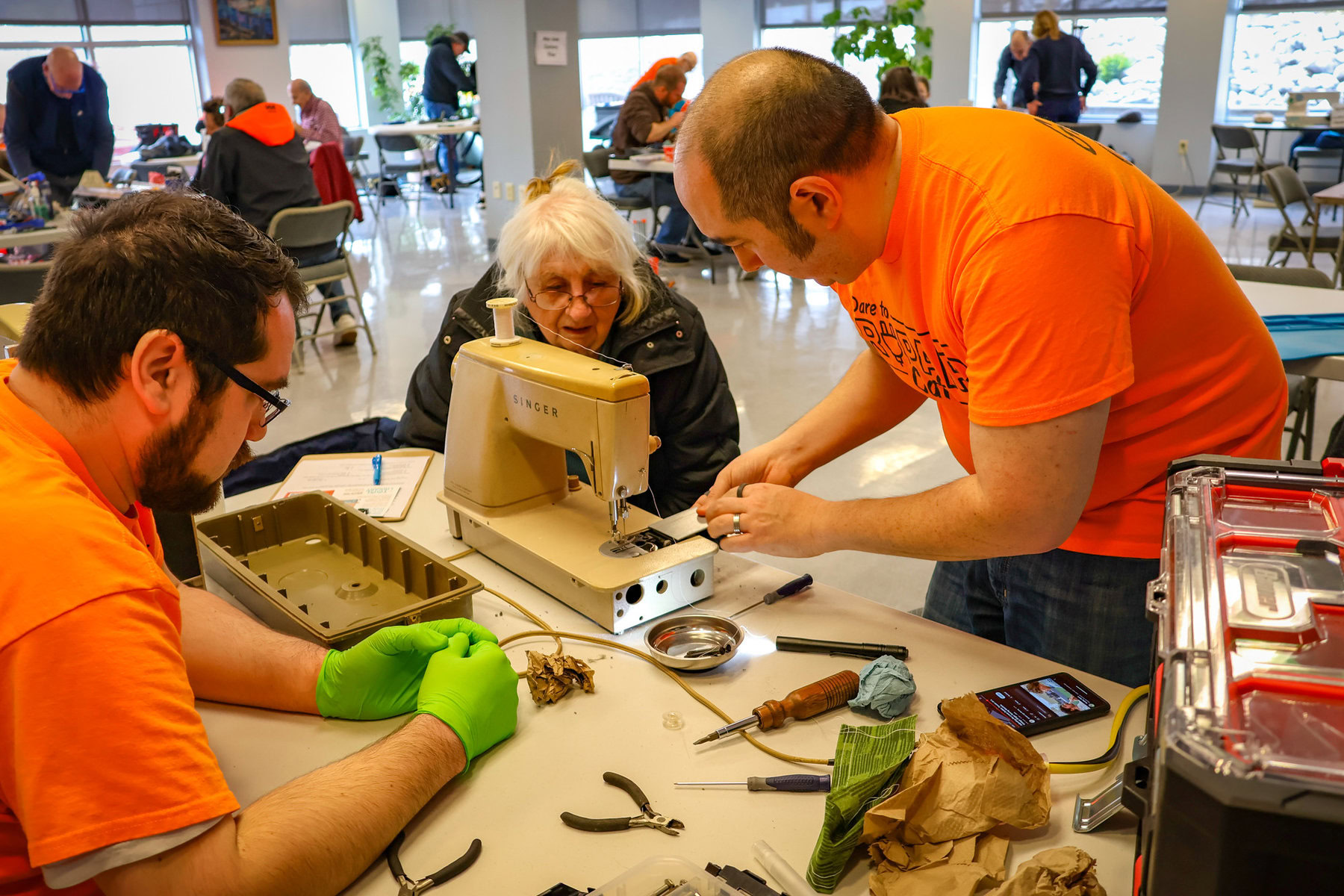
For the March iteration, a team of volunteers set up shop in the basement of a public library in Akron, a small village 20 miles northeast of Buffalo. The room hummed with quiet chatter and the intermittent vrooms of faulty vacuums. Volunteer fixers puttered around a coffee station and traded stories in between work on lamps, clocks, Kitchenaid mixers and old CD players.
The atmosphere is both studious and social; over time, fixers often become friends. They also teach attendees the skills needed to make their own repairs: “What I love is that you not only get your fixes for free, but you get a lesson as well,” said Antoinette McClain, a Tool Library board member who helps organize the events.
Many of those fixes are quite simple — which makes the impulse to junk these items look all the more wasteful. Both of the broken vacuums at the March cafe simply needed a good cleaning, for instance. Jennifer and Rebecca Outten, who brought the vacuums, said they would have spent $400 or more to replace each one.
“We love the Buy Nothing groups,” said Jennifer, referring to a movement of popular Facebook pages that encourage people to reuse household items instead of buying new. “But this, the repair cafe, I had never heard of.”
I also left the Akron library with a newfound appreciation for repair: To fix the holes in two cashmere sweaters, volunteers Don Winkleman and Tom Guerra coached me through the process of ironing on a fabric patch.
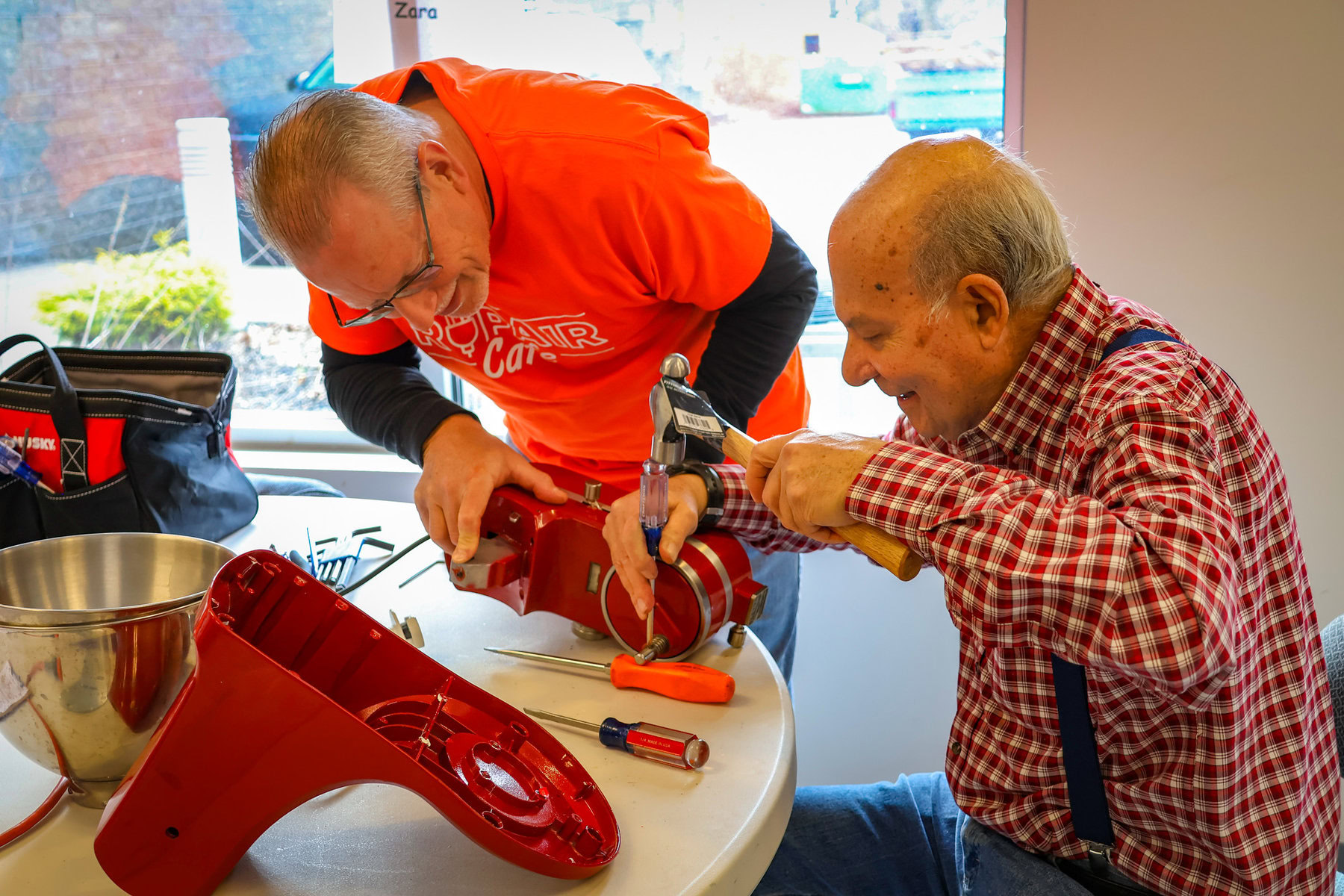
Of course, I am but one of the millions of consumers needlessly tossing and replacing my stuff — and the repair movement faces a long, uphill battle against the wider culture of throwaway consumerism. In Buffalo, The Tool Library also faces the sorts of financial constraints common to many small community nonprofits. The organization will soon have the option, for instance, to acquire the building it moved into last year — but the cost to acquire and renovate the structure tops $1 million.
The Tool Library plans to launch a capital campaign in April, Cotton said, and is currently a finalist for a major regional foundation grant. With that funding, he added, The Tool Library could build out new community space, seed mini-libraries across the region and further champion communal resource-sharing as a model for social and environmental innovation.
“It’s one thing to be cool and novel and niche,” Cotton said. “But the question for us is: How do we make sharing and repairing ubiquitous?”












